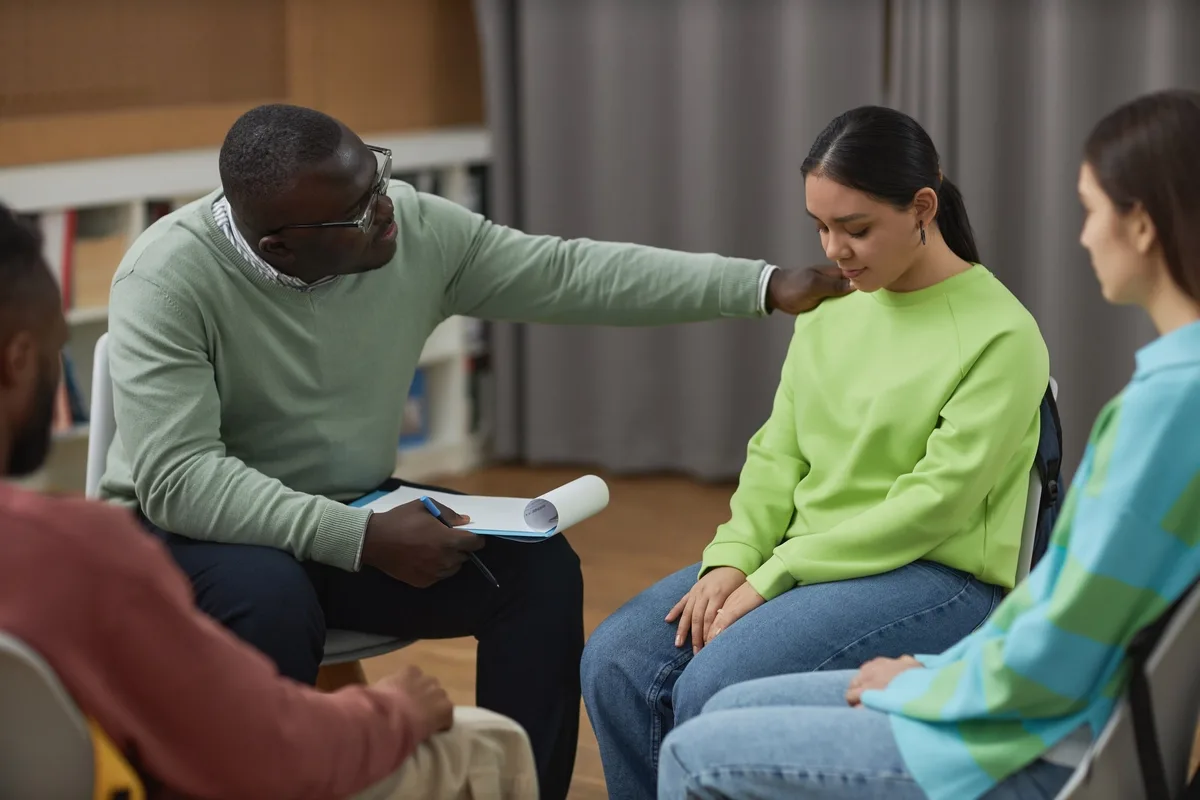24/7 Helpline:
(866) 899-221924/7 Helpline:
(866) 899-2219
Learn more about PTSD Treatment centers in Shakopee
PTSD Treatment in Other Cities

Other Insurance Options

ComPsych

CareFirst

BlueShield

Amerigroup

Evernorth

Excellus

WellPoint

UnitedHealth Group

Covered California

UMR

BlueCross

Optima

Humana

Group Health Incorporated

BHS | Behavioral Health Systems

Horizon Healthcare Service

Lucent

Premera

Ceridian

Access to Recovery (ATR) Voucher

Haven Chemical Health Systems
Haven Chemical Health Systems is a private rehab located in Shakopee, Minnesota. Haven Chemical Heal...

BHSI Shakopee
BHSI Shakopee is a private rehab located in Shakopee, Minnesota. BHSI Shakopee specializes in the tr...

Scott County Mental Health Center
Scott County Mental Health Center is a public rehab located in Shakopee, Minnesota. Scott County Men...

NorthStar Regional – Men’s Residential
NorthStar Regional–Men’s Residential is a behavioral and mental health care facility for adult men i...

Reformers Unanimous – Addictions Recovery Program
Reformers Unanimous – Addictions Recovery Program is a private rehab located in Shakopee, Minnesota....

A Way Out Recovery
A Way Out Recovery is a drug and alcohol rehab in Shakopee, MN providing men with sober living optio...



